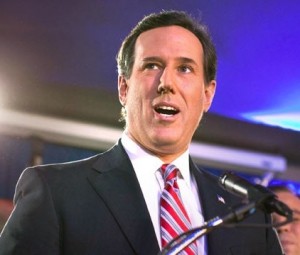Over at Ravings of a Feral Genius, the whole contraception-Sandra-Fluke-Rush-Limbaugh-slut-prostitute incident has got Jennifer Able pissed off at some of her fellow libertarian bloggers (emphasis, I suspect, on “fellow”):
Limbaugh’s rant didn’t surprise me at all. Here’s what did surprise me: when I’d go on Facebook, or visit various political blogs and forums I’m prone to frequent, all run by people I’d considered political allies of a sort (mainly self-described libertarians who claim to share my mantra “Social liberal and fiscal conservative”), I saw to my dismay how many “libertarians” favor Limbaugh’s view of ovarian-cyst treatment over Fluke’s.
I saw countless photos of Fluke’s face with captions suggesting she wants taxpayers to buy her silk sheets, Barry White albums and vibrating dildos; captions suggesting that only whores want or need healthy reproductive systems.
Sigh. Healthcare reform is a massive government-driven restructuring of something like a full 10 percent of the entire U.S. economy. There’s a serious debate about how to fix all the problems with our current system. The health and well-being of millions of people hangs in the balance. And somehow Rush Limbaugh has reduced us to talking about this crap.
So let’s get this part out of the way: Rush Limbaugh is a giant flaming asshole. He didn’t just call Sandra Fluke a “slut” and a “prostitute.” The criticism he’s getting is not just about the words he used. The man spent days trying to humiliate and degrade Fluke.
Now, as a general rule, it’s a bad idea to buy insurance protection for things you can afford without insurance. This is especially true for routine and predictable costs such as contraception, where the insurance company is just going to add the cost to your premium anyway, along with a little bit of overhead and profit for themselves. This is why you insure your car against the cost of repair after a collision, but not against the cost of an oil change.
There’s also a pretty good argument that, if the government did not distort the healthcare market in any other way, then it certainly shouldn’t get involved with specifying the pill-by-pill details of everyone’s health insurance coverage.
In our reality, however, the government introduces a massive distortion by providing a tax subsidy for employer-provided healthcare, which makes it economical to buy insurance for things we could otherwise afford to pay for directly, such as routine doctor’s visits, many common medications, and yes, contraception. The tax saving offsets the cost of funneling the money through an insurance plan. But that’s only true on a personal scale. Our economy as a whole still pays the deadweight loss of operating a massive insurance bureaucracy.
(It’s not just health insurance, either. Corporations that routinely bet $100 million on developing new products for the market will still buy insurance for the $1200 computers on everyone’s desks because they get a tax break on the insurance.)
The government also distorts the market by being the single payer for millions of elderly and poor people, and it operates a chain of hospitals for military veterans. At the same time, the government drives up the cost of medical care, drugs, and hospitalization with regulations and cartel-forming barriers to entry.
The healthcare market is very, very far from Libertopia. Like it or not, the government is now heavily involved in making these decisions for us.
Don’t forget that the reason we’re debating minimum healthcare coverage terms is that, thanks to the individual health insurance mandate, the government is going to force all of us to buy into it. In free market terms, we’re losing the power of exit. If we think a store’s goods are shoddy or overpriced or just not to our taste, we can always walk out the door. We can even avoid the TSA’s degrading treatment of passengers if we’re serious enough to give up all air travel. But when it comes to health insurance, there’s no way out.
Therefore it seems a bit misguided to complain about Sandra Fluke’s desire to influence the terms of an insurance plan that she will be forced to buy at gunpoint.
I also read various respected libertarianish blogs — no names mentioned, no links provided, they’d be largely interchangeable anyway — blogs and comment threads attempting to be dispassionate, when they explained how Fluke wasn’t necessarily a “slut” for talking about her friend’s ovarian cyst, but was surely a whiny demander of free stuff because women who want their health insurance companies to pay for health problems involving their gender-specific body parts are just a buncha goddamn socialist Commies, or something.
I’m not sure, but something I wrote on my other blog might be the kind of thing Jennifer is talking about. I can’t speak for all those other libertarian bloggers, but one of the things I like to do in my posts is to take an issue in the news, pick out something that interests me, and strip away the surrounding mess until I can talk about it clearly. So perhaps that’s what some of those other bloggers were doing too.
Probably not all of them, though.
After awhile, it all started to sound like a thread on Stormfront discussing Obama’s dismal record of war crimes, TSA molestation policies and similar problems — yeah, guys, you have a couple legitimate complaints here, but quit pretending your hatred of Obama stems from your principled love of constitution and country. No: you hate the man because he is black, and the fact that he later went on to do things so odious you’d even criticize a white man for it is just a lucky coincidence.
Politics makes for strange bedfellows but some fellows I’d never bed, despite my being the sort of “prostitute” who believes women’s medical insurance companies should cover women’s medical problems. For example: no matter how bad TSA and NSA get under Obama, I’m still not hooking up with David Duke and the Stormfronters to fight them … and it looks like I can’t hook up with most “libertarians,” either. At least not the ones who’d call me a prostitute for opposing any reproductive-organs exemption to medical coverage.
Like many other radical movements, libertarianism has some very dark corners. Probably the darkest of these corners — the ones we talk about the least — are the corners where all the bigots are hiding.
I think it’s a reaction to shifting political power. There was no such thing as the Ku Klux Klan when white people were completely in charge and black people were literally slaves. But once the slaves were emancipated, white bigots lost some power in the world, and they fought back by forming a terrorist organization, with the goal of keeping blacks in their place.
That hasn’t worked out real well for them: Just check the skin color of our current President. It took a damned long time, but black people have risen up in this country and begun to take their share of political power. Women have been on the same path, gaining in power and influence every decade. These changes frighten a lot of bigots, and when people who frighten you are beginning to control the government, the idea of a smaller government begins to look really attractive. So they start calling themselves libertarians.
(Stripped of the racist elements, that’s a pretty good description of why I’m a libertarian: The people who control our government are frightening me.)
We all know a few of those libertarians. They’re the ones who complain endlessly about the government’s abuse of power, but the only example they ever come up with is Affirmative Action. They’re the ones who can only list “welfare” when asked for an example of government waste. They’re the ones who oppose gun control because “the streets are filled with savages.” They’re the ones who wrote the worst of the Ron Paul newsletters. And when the government wants to restructure healthcare, they’re the ones who only seem really upset about the parts that help women.
These kinds of attitudes do nothing to help libertarianism and plenty to hurt it, because they make other people distrust our motives. I don’t know how many times I’ve heard libertarianism derided as being for “privileged white males.”
To me, that’s a terrible misrepresentation. One of the best features of libertarianism is that it is a philosophy, not a group identity. If we oppose a policy that creates an unfair advantage for women or minorities, we do so because we believe the policy is wrong, not because of who benefits from the policy, and we will similarly oppose wrong-headed policies that hurt women and minorities, or that help white males. The goal is to make all of us more free, in the broadest way possible.
But to do that, we’re eventually going to have to convince everybody that we’ll all be better off if we all give up the special goodies we get from the government. And we’ll have a much better chance of convincing other people if they believe we are sincere in our philosophy and don’t have another agenda. Which is made a lot harder by the fact that some people who call themselves libertarians have another agenda.
To put this in terms my fellow libertarians might understand, it’s kind of like handgun registration. Many advocates of registration have trouble understanding why anyone would oppose such a simple and harmless requirement. What they don’t realize is that hardly anyone in the pro-gun movement is really worried about registration. No, what worries gun owners is what comes next? What worries gun owners is that once registration is enacted, gun grabbers will use it to enact the next step on their agenda, such as a handgun ban. This is not paranoia: There really are advocates of registration who want to ban handguns, and some of them have been successful.
Similarly, when libertarians argue that the government should not force health insurance to cover contraception, women’s advocates are likely to see that not as standing up for small-government principles, but as an attack on birth control. That’s not paranoia either. There’s a long history in this country of outlawing various forms of contraception. During the Comstock era, it was even against the law to distribute pamphlets about contraception. The last of those laws was struck down as recently as 1972. And then there’s the current Presidential candidate who says (17:40) that contraception is “a license to do things in a sexual realm that is counter to how things are supposed to be.”
No wonder some women don’t trust us. Even Jennifer — a fine libertarian writer who I’ve tried, unsuccessfully, to recruit as a blogger here — is beginning to have “a secular crisis of faith” because of the way this issue has played out.
If we want libertarian ideas to have a future in our political environment, it’s not enough that we believe we’re right. We’re also going to have to convince a lot of other people that we’re right. And just because they don’t agree with us, that doesn’t make them our enemies. We should treat them with respect. When women want a piece of healthcare reform to work for them, we’re unlikely to convince them our way is better by calling them “sluts” and “prostitutes.”
Not that there’s anything wrong with being a slut or a prostitute. We are, after all, libertarians. So let me end this with a quote from retired prostitute and occasional guest blogger Maggie McNeill, writing about advocating for sex workers:
For any given issue there are three positions: Those who are strongly for it, those who are strongly against it, and those who don’t have a strong opinion either way. And no matter what fanatics and demagogues may tell you, the third is nearly always the largest group on any issue. When trying to sway public opinion, therefore, the wise writer or speaker targets that middle group, the “silent majority”. It’s silly to waste energy in trying to convince those who are already convinced (“preaching to the choir”), and pointless to argue with those who are dogmatically committed to the opposite view (one can’t reason a person out of a position he didn’t reason himself into). But the members of that third group, if they can be won, will decide the way the wheel turns. They are the ones who took it for granted that black and white people couldn’t live together peacefully, but now abhor racism; they’re the ones who accepted the claim that homosexuals were perverts, yet now agree with equal conviction that they shouldn’t be mistreated.
And they’re the ones who take it for granted that the government is there to protect us from everything and provide for all our needs, but may someday realize that we’re better off not giving anybody that much power over us.







